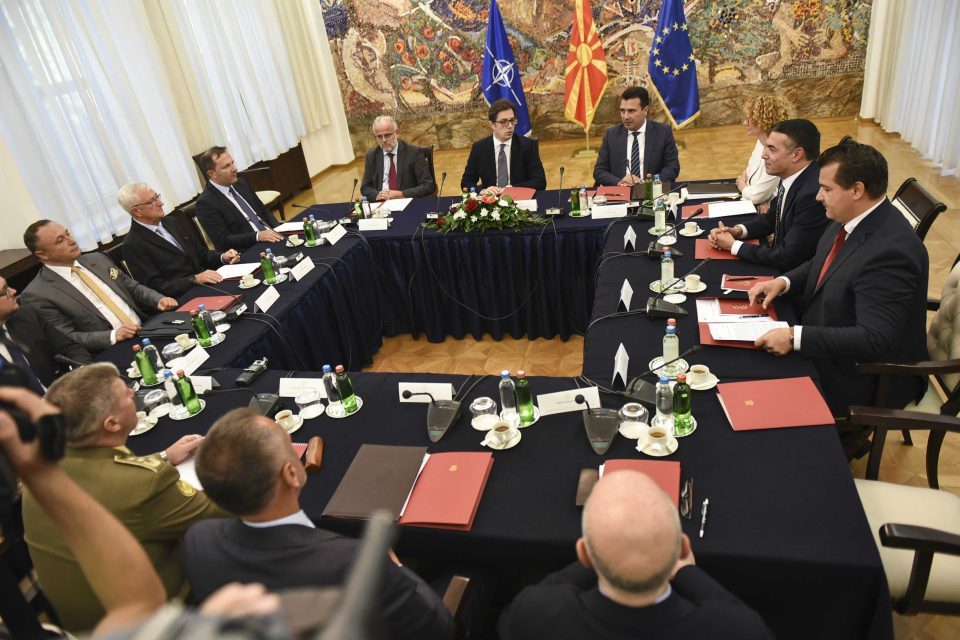VMRO-DPMNE President Hristijan Mickoski said that party leaders were divided over whether to declare a crisis situation or state of emergency in Macedonia because of the coronavirus. VMRO-DPMNE proposed declaring a crisis situation across the whole of Macedonia while SDSM leader Zoran Zaev asked for a state of emergency.
Mickoski pointed out that there are legal inconsistencies with both options. The state of emergency is provided in the Constitution, but Macedonia has never passed a law to detail competencies and obligations under that scenario. On the other hand there is a much more detailed law on crisis management, but a “crisis situation” is not a constitutional category.
The law on crisis management was applied successfully in the past, during the 2016 flooding in Skopje and elsewhere. We would set up a crisis team and handle the issue. So maybe it would be best to have the assembled legal experts discuss on whether it is acceptable to first declare a month long crisis situation across the entire country, and as a future step, perhaps declare a state of emergency, Mickoski said. Legal experts from all political sides are gathered to work on finding a way to postpone the elections that were scheduled for April 12.
Zaev told the press that SDSM proposed declaring a state of emergency, which would concentrate legislative power in the Government, but VMRO-DPMNE was opposed.
I opened the meeting with this proposal, so we can tackele the challenge more efficiently. VMRO-DPMNE did not agree with this, they proposed a crisis situation, Zaev said.
On the economic front, opposition leader Mickoski said that declaring a crisis situation would help better handle the expected economic hit. The Government announced it will freeze prices of basic consumer items needed during the epidemic to prevent profiteering.
Over the past seven days I’ve been appealing to the Government to adopt a range of economic measure. Due to their passive attitude we see them begin to act only now, Mickoski said.
On the SDSM side, opinion also seems divided between President Stevo Pendarovski and soem of the key ministers who are tasked with handling the crisis. Pendarovski yesterday declared that he is not proposing that a state of emergency or a crisis situation is declared. He acknowledged that the Government is already using much of the rights it would have under these options without having them officially declared. Under a state of emergency, Pendarovski would also have a significant role to play, and ministers like Nikola Dimitrov (foreign affairs) and Radmila Sekerinska (defense) would be able to shift some of the blame for the crisis on him.
Both these departments have struggled to make their presence felt, the first with many Macedonian citizens finding themselves cut off across the world and unable to return home. The latter was largely AWOL, at least compared with other neighboring and European countries that have already declared their version of a crisis, and the army has visibly acted to assist the Government. But Pendarovski has also kept a low profile during the crisis and has reduces his actions to holding a meeting of the Security Council and of party leaders.
Politically, the Government put Healthcare Minister Venko Filipce front and center of the crisis. Despite the major failure when clinic director Nina Caca Biljanovska brought the virus from a ski trip to Italy and continued to go to work, creating a chaotic situation in Skopje’s main clinic complex, Filipce has mostly fared well. But he was a notable omission from the SDSM party lists that were revealed shortly before the epidemic began in full. On the other hand, Dimitrov and Sekerinska lead two important SDSM lists and shifting some blame for their performance on President Pendarovski could help them when the elections are eventually held.




Comments are closed for this post.